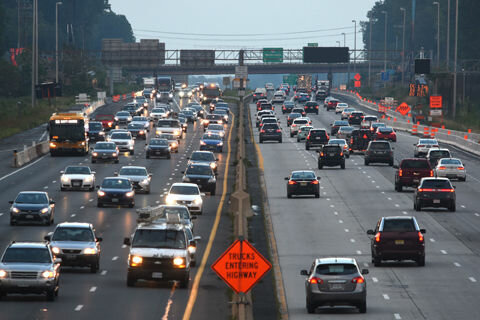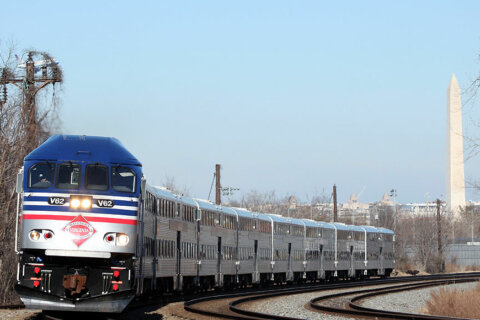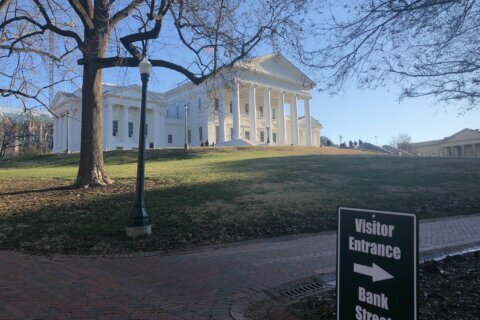Gas taxes would rise less than initially proposed and car inspections would remain an annual requirement under the latest version of a major Virginia transportation funding overhaul set to be approved by the state’s Senate on Tuesday.
While the bill remains far from the final form it is expected to take when sent to the governor’s desk in a few weeks, the Senate’s version would raise the statewide gas tax eight cents over the next two years then index it to inflation. The bill would also add a 2.1% regional gas tax in the areas that do not have it today (it exists along I-81, in Northern Virginia and in Hampton Roads) to provide funding for local road projects.
The Senate bill keeps a proposed “fuel efficient” vehicle fee charged to electric or alternative fuel cars and cars that get 24 or more miles per gallon to account for lower gas taxes those drivers pay, and the bill would keep current registration fees.
By maintaining registration fees and annual inspections, the Senate believes the gas tax does not need to be raised another 4 cents in the third year before indexing to inflation.
On the rails, the final version of the bill is expected to include a requirement to prioritize improvements between D.C., Richmond and the Hampton Roads area before any work begins to improve service between Richmond and Raleigh, North Carolina, Senate Majority Leader Dick Saslaw said.
Additional changes are also expected in the next few weeks on the structure of the new body being created to oversee the major rail improvements, including the Long Bridge construction between Arlington and D.C.
Further discussion is also expected about the balance of funds used for general road maintenance compared to the money designated for specific safety improvements.
The house of delegates voted Monday to pass language in line with the original transportation bill proposals introduced last month, but the House could still also offer additional amendments on the Senate version in coming weeks.
The House version scales back vehicle inspection requirements to every other year.
The two chambers expect to work out their differences by the time the session ends on March 7.
After that, Gov. Ralph Northam is permitted to offer amendments to the bill to be considered at April’s reconvened session if there are additional negotiations needed to reach consensus.
The Northam administration supports the bill overall.
The General Assembly is also in the final stages of approving safety changes, including a ban on handheld cellphone use while driving, a ban on open containers of alcohol in cars and tighter seat belt laws.
Other bills making transportation changes
Virginia is closer than ever to eliminating the risk of jail time for drivers going 81 mph in a 70 mph zone.
While the Senate has supported a change to the reckless driving law for several years to raise the automatic trigger for reckless driving from 80 mph to 85 mph, the House is expected to pass its own version of that bill Tuesday for the first time.
Under the House version, the threat of one year in jail would apply to drivers going 86 mph or faster in a 70 mph zone, while speeding 81 mph to 85 mph would come with an extra $100 fine above regular speeding penalties.
It would remain reckless driving to go 20 mph or more over the posted speed limit anywhere in Virginia.
Under a separate bill approved by the Senate, it would become illegal for a non-plug-in car to park in an electric vehicle charging spot. The idea is to keep the spaces clear for cars that need to plug in. A violator could be ticketed and towed.
Tuesday deadline
Tuesday night is the final deadline for a bill to pass in the house in which it was introduced to cross over to the other side.
Among the bills on the long final agendas, the House is set to approve scaled-back restrictions on assault weapons that would restrict magazines that hold more than 12 rounds and limit the sale or transfer of certain guns.
Lawmakers are also expected to consider redistricting regulations that would outline how new General Assembly and Congressional lines will be drawn next year, and long-term plans to move Virginia away from fossil fuels and into more solar, wind and other energy sources.







